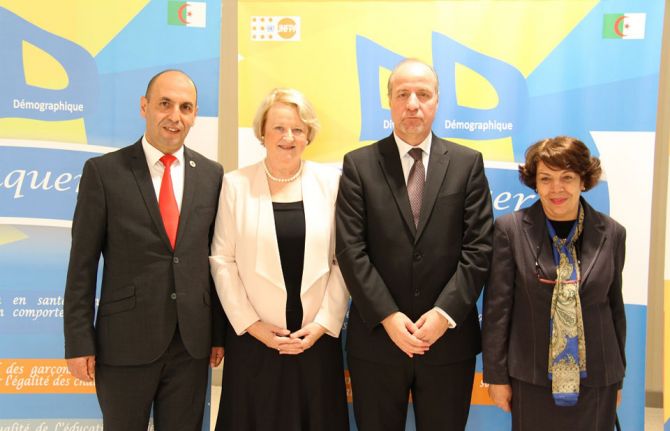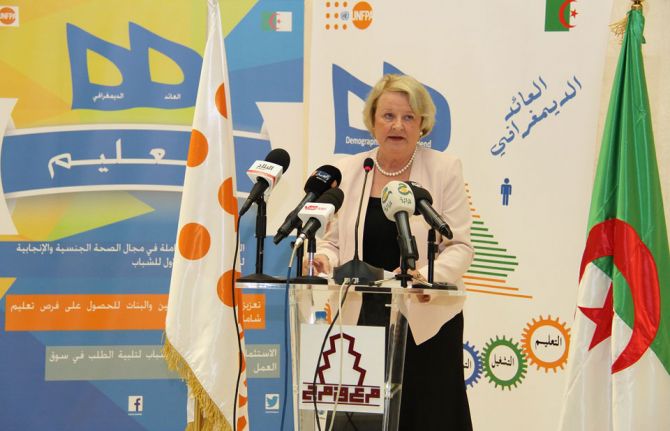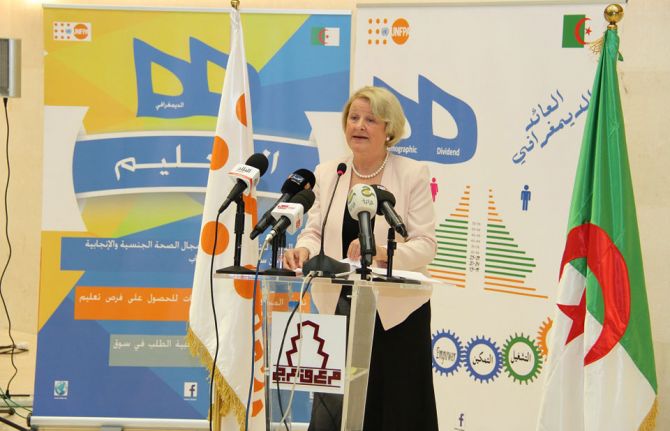



Update
Middle East and North Africa: HIV lessons can guide development responses for young people and women
30 November 2016
30 November 2016 30 November 2016At a regional forum focusing on optimizing the demographic dividend in the Middle East and North Africa, lessons learned from the AIDS response were emphasized as critical to guiding investment and efforts for development responses for young people and women.
Representatives of government, international organizations, civil society, the media and others joined together in Algiers, Algeria, for a two-day forum organized by the United Nations Population Fund, the League of Arab States and the Government of Algeria. The forum explored how economic growth, comprehensive education and health and social systems that put young people and women at the centre can result in lower maternal mortality, higher life expectancy and gains across the Sustainable Development Goals.
UNAIDS Deputy Executive Director Jan Beagle opened the forum, emphasizing that the experiences of the multisectoral, multistakeholder and inclusive AIDS response can be leveraged for wide-reaching results.
“By investing in girls and young women, boys and young men at the critical stages in their lives, and building coalitions across sectors, we can end AIDS by 2030 and contribute to broader health, development, rights and gender outcomes in the region,” Ms Beagle said.
Ms Beagle stressed the importance of prioritizing awareness-raising and education among young people, ensuring a specific focus on women and girls and increasing synergies between health and development responses, including for tuberculosis, human papillomavirus and hepatitis C.
To address stigma and discrimination in the region, which hampers access to services, legal and policy environments need to promote change and protect the vulnerable and to enable the effective implementation of laws and policies. “The laws on the books need to be mirrored by the laws on the streets,” Ms Beagle said.
Political commitment for the AIDS response is growing in the region, but challenges persist, including in terms of low treatment coverage, preventing mother-to-child-transmission of HIV and the increase in HIV infections in some communities. The renewed political commitment expressed at the forum can help to counter those challenges.
Region/country
Related
 Government ensures continuity of treatment in Malawi
Government ensures continuity of treatment in Malawi

10 February 2025


